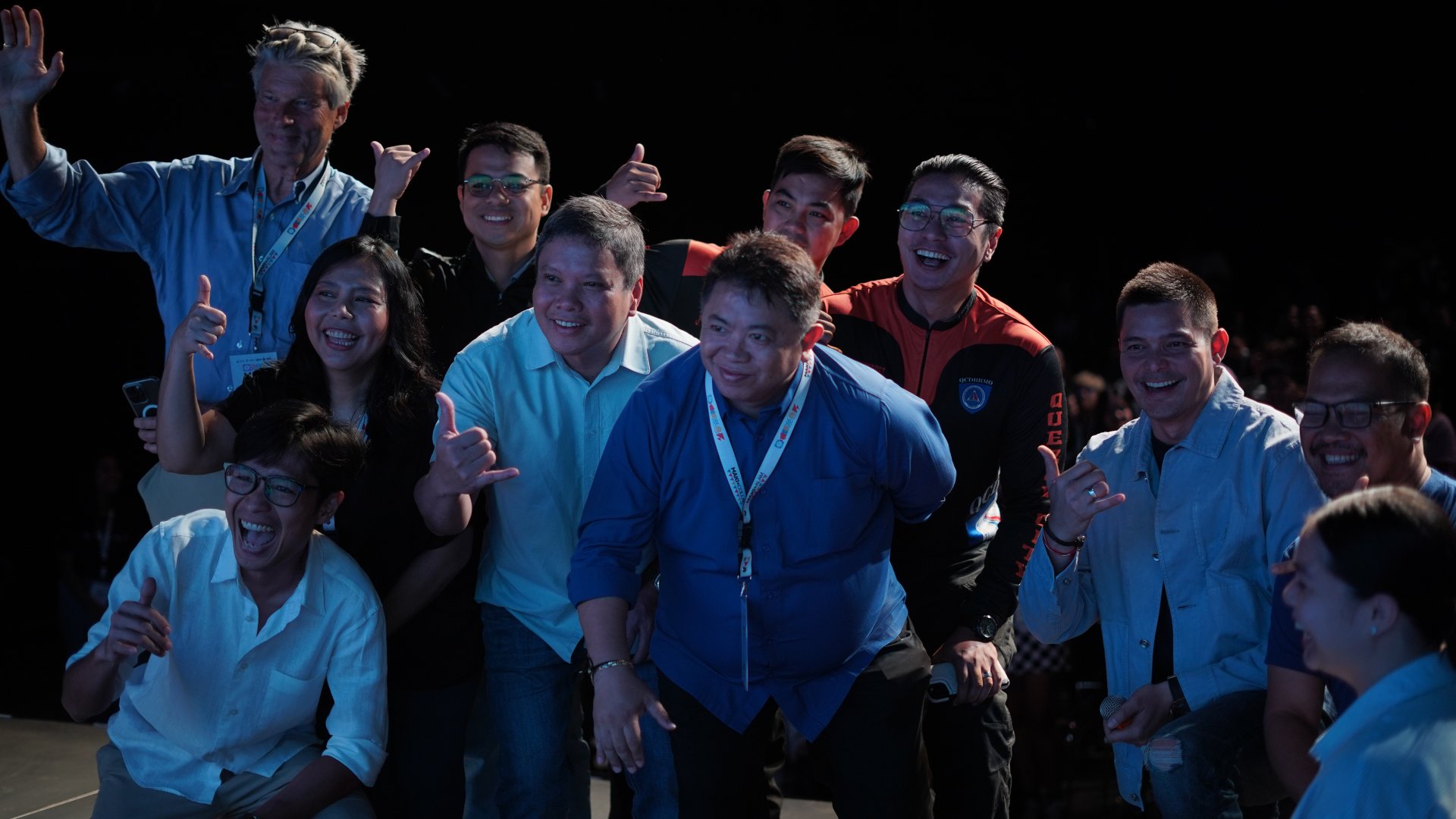
In the Philippines: a fresh take on freedom of expression
Young people want to be involved, but they’re looking for new ways to participate in society – a new festival showed a way forward.
One of the biggest challenges in promoting and defending democracy, free expression, and human rights today is how to engage the youth. Millennials and Gen Zs recognise the importance of these values, but in many societies, they remain disengaged. Even those who understand the significance of independent journalism and reliable news often find themselves tuning out—a phenomenon known as news avoidance. In the age of TikTok, where social media is a vital platform for expression, the traditional activist mode can feel out of touch, even alienating. In short: Young people want to be involved, but they’re looking for new ways to participate.
This is the reality that a unique coalition of independent media, academics, and local government took on recently in the Philippines. The MAKI+Fiesta, held from August 23-24, 2024 in Quezon City, Metro Manila, wasn’t just another event—it was an innovative and fresh approach to broadening the conversation about democracy and free expression. Brought to life by the Quezon City government, the University of the Philippines, the Philippine programme of IMS, and three of IMS’ independent media partners —PumaPodcast, Fyt Media, and Probe Productions — MAKI+Fiesta attracted around 800 participants, nearly 70 percent were between 18 and 34 years old. The festival succeeded in engaging the youth.
MAKI+Fiesta was designed to move the conversation beyond the usual, bringing together a diverse mix of creatives, storytellers, and communicators. Among those who participated were not only content creators, writers, visual and performing artists, filmmakers, PR and advertising professionals, influencers, and educators, but also industrial designers, theatre-professionals, urban and mobility reform champions, tourism advocates, cultural and heritage preservation champions, and even agriculture and food entrepreneurs. This wide-ranging participation was crucial to the festival’s success. It wasn’t just about promoting values; it was about demonstrating how these values—responsibility, ethics, and truth—are essential for building an information-resilient society.
The festival itself became a dynamic platform for networking among these different creative sectors, consciously inspiring and demonstrating the power of collaboration. One of the festival’s key tracks, titled “When We Tell Stories Together,” featured sessions, case studies, and best practices on impactful collaborations, tackling everything from climate change reporting to the story and journey of the Bangsamoro Autonomous Region in Muslim Mindanao (BARMM). BARMM represents a crucial experiment in autonomous governance and is pivotal for establishing a lasting and progressive peace in one of the poorest and most conflict-stricken regions in the Philippines.
The festival’s name, MAKI+Fiesta, is deeply rooted in Filipino culture. In Filipino, “Maki-” is a prefix that, when attached to any noun or verb, means “Come join in…” or “Come be part of…”. It can apply to anything from eating to lending a hand. Crucially, at the University of the Philippines, where the festival was held, “Maki-” is part of the State University’s most famous battle cry—”MAKIBAKA”—which has been associated with student activism since the late 1960s, meaning “Come join the fight.” MAKI+Fiesta is a nod to that tradition of involvement, but it deliberately updates the vibe and spirit, making it inviting and reassuring. The festival content ensured that this is still about something bigger than each of us alone.
Over two days, MAKI+Fiesta offered a line-up of content that celebrated creativity and innovation while elevating democracy and free expression as foundational elements of a thriving creative economy. While sessions took on contemporary topics and themes, from AI to podcasting, data journalism, new forms of storytelling, and the rise of independent content creators and influencers, the festival tackled pressing issues like climate change, the struggles of marginalized and indigenous communities, women’s empowerment, and the pursuit of better politics and governance. These weren’t just token discussions—they were lively, engaging conversations that made it clear how democratic values can be harnessed not just for social good, but for economic progress as well. Values-aligned influencers sat alongside traditional journalists and even government communicators to discuss how to fight disinformation, and ultimately, how to protect the democracy on which everyone’s story and journey can only thrive.

What made MAKI+Fiesta so impactful was its resonance with the youth. By offering content that spoke directly to their interests and concerns, the festival empowered young Filipinos to see democracy and free expression not as abstract concepts to be defended, but as tools to be actively used and championed in their everyday lives and creative work.
In the end, MAKI+Fiesta set a new standard for how democratic values can be promoted and celebrated. By linking these principles with the creative economy, the festival demonstrated that a society built on freedom, truth, and active engagement with democracy is one that is poised for growth, innovation, and meaningful change. This wasn’t just a festival—it was a fresh, innovative approach to making democracy and free expression relevant to the next generation.




